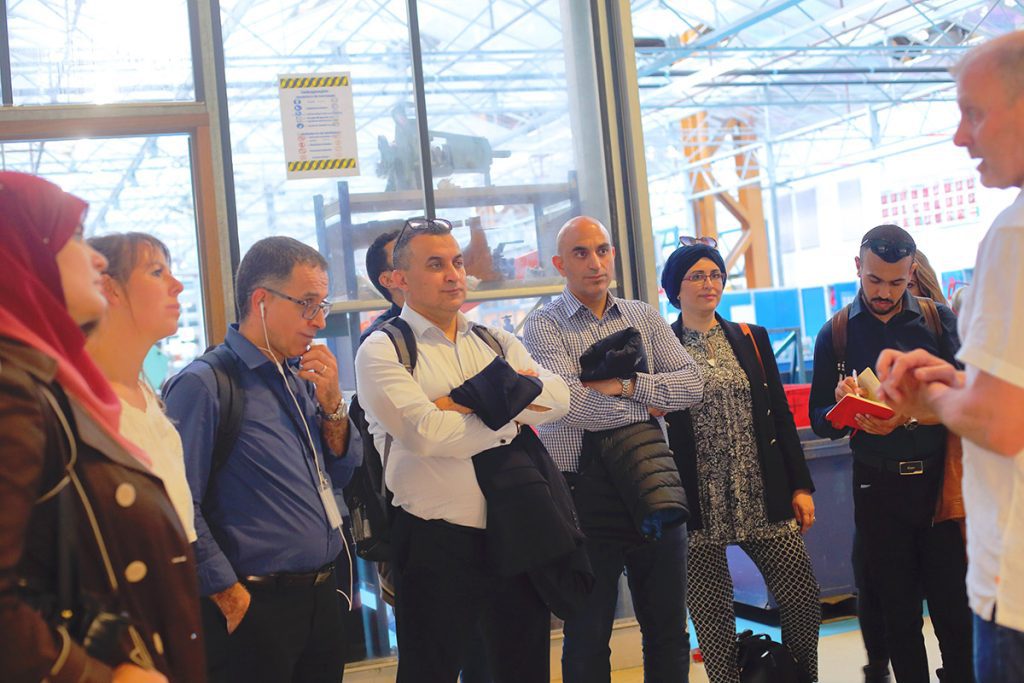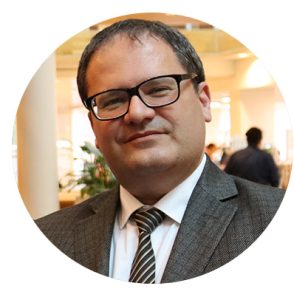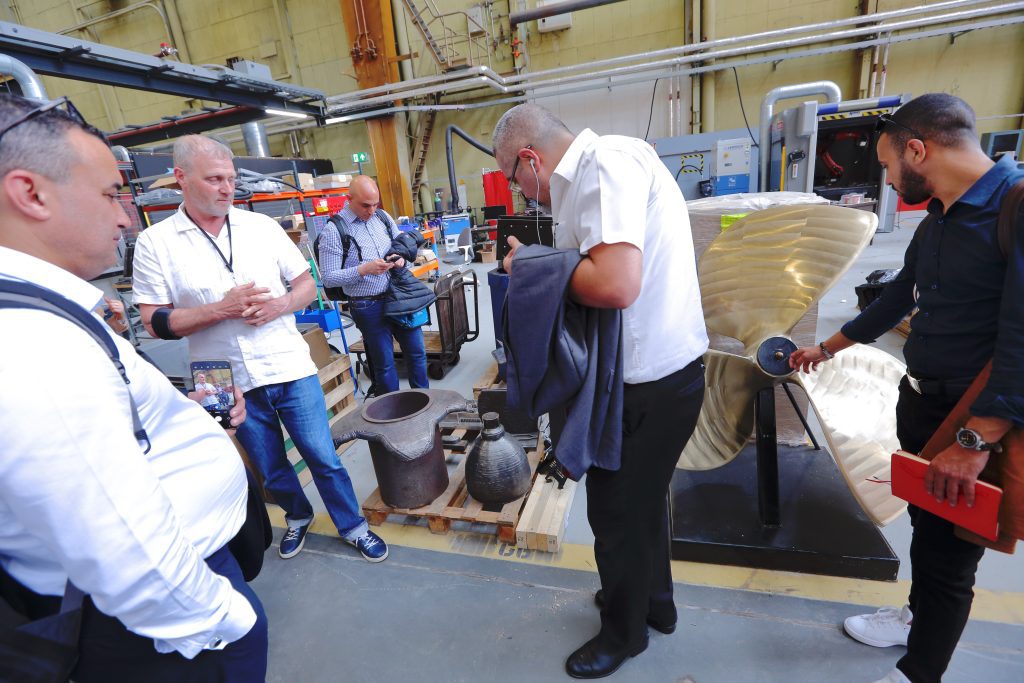Algeria is making strides in creating a vibrant economy of startups through a network of institutions and policies that foster entrepreneurship. Through a study visit in the Netherlands, Dr Amazigh Sid seeks to bring back lessons to help entrepreneurs in Algeria grow further.

Algerian policymakers are seeking to transform their country’s economy, and they are doing so through the support of startups. A leading actor in this push is the Ministry of Economy, Startups, and Micro-enterprises, established specifically to foster innovative environments within the Algerian economic landscape. However, a conducive ecosystem for entrepreneurship involves various actors in multiple sectors and at multiple levels. In line with this, other Algerian institutions are key players. A-VENTURE, for instance, is a public innovation centre that supports startups, incubators, and investors, with a focus on Algerian youth. With the collaboration of six banks, the Ministry of Startups also supports the Algerian Startup Fund (ASF) to bolster up-and-coming ideas. Likewise, the Ministry of Higher Education and Scientific Research supports graduates in turning their ideas into startups, patents, and innovative projects.
In addition, other various other entities, such as incubators, accelerators, and government organisations, like the National Agency for the Promotion and Development of Technological Parks, provide resources and support to entrepreneurs. Moreover, throughout the country, hubs and coworking spaces foster collaboration and networking among entrepreneurs.
Strengthening the Entrepreneurial Culture
Still, while the Algerian entrepreneurial ecosystem shows promise, challenges remain. The government has made efforts to remove red tape, but bureaucratic regulations and administrative obstacles can hinder entrepreneurs when establishing and operating businesses. Access to financing, including venture capital funds, remains limited, and banks are often hesitant to take risks.
 This brings us to Dr Amazigh Dib, the Private Sector Coordinator and Entrepreneurship Hub Manager at the Pan African University Institute of Water and Energy Sciences (PAUWES). Amazigh, one of the participants of our Shiraka programme Ecosystems for Entrepreneurs in 2022, shares his first-hand experience on the progress Algeria has made in fostering entrepreneurship. Keeping the spirit of entrepreneurship himself, he recognises that amid tremendous progress, policy and practice can still grow:
This brings us to Dr Amazigh Dib, the Private Sector Coordinator and Entrepreneurship Hub Manager at the Pan African University Institute of Water and Energy Sciences (PAUWES). Amazigh, one of the participants of our Shiraka programme Ecosystems for Entrepreneurs in 2022, shares his first-hand experience on the progress Algeria has made in fostering entrepreneurship. Keeping the spirit of entrepreneurship himself, he recognises that amid tremendous progress, policy and practice can still grow:
“Algeria has numerous opportunities for ambitious entrepreneurs. With continued support from the government, private sector, and stakeholders, the country can build a thriving ecosystem that promotes entrepreneurship, innovation, and economic growth”.
With this thought, Amazigh decided to join the Shiraka programme to exchange and learn from the Dutch entrepreneurial ecosystem, understand its stakeholders, and share best practices with Dutch institutions. His goal was to contextualise the knowledge gained from the programme within the Algerian entrepreneurial ecosystem and create networking opportunities for mutual growth and benefit.
A Study Trip with the Shiraka Entrepreneurial Programme
Throughout the programme, Amazigh learned about the emergence and evolution of the Dutch entrepreneurial ecosystem and the roles and interests of various stakeholders. He was particularly impressed by the actions taken by the Dutch Ministry of Economic Affairs to support entrepreneurship through dedicated policies and legislation.
As a university lecturer and manager of a Pan-African entrepreneurial Hub, Amazigh took particular note of the link between vocational training and entrepreneurship made in Dutch institutions in Rotterdam and Delft.
“The visit to YES! Delft, the incubator at Delft University, was a significant moment for me during the program. The dedicated infrastructure, initiatives, and programmes developed to support technology and innovation-driven startups, and how they connect to the university student population, were a great source of inspiration”.

In Amsterdam, the presentation by the Amsterdam Economic Board showcased a comprehensive case study of an entrepreneurial ecosystem in action. Amazigh was impressed by the innovative solutions provided by the Amsterdam startup programme to address social challenges. He aspires to develop a similar initiative in the city of Tlemcen.
Rounding off, the study trip also covered how Amsterdam in Business facilitates foreign investment and how the Innovation Quarter seeks to aid entrepreneurs obtain funding. Finally, a presentation by the company ICOS Capital deepened his understanding of venture capital operations: “I understand very well that the need for financing is a significant challenge for young entrepreneurs and startup founders”.
Maintaining Growth in Algeria
Amazigh’s back-home action plan focuses on developing training programmes for university incubator managers. He plans to launch an online course in the upcoming academic year, using the knowledge gained from the Shiraka programme- particularly “understanding the functioning and synergy of an entrepreneurial ecosystem”.
Strengthening the entrepreneurial culture and developing entrepreneurial and technological skills within the population is crucial for supporting the growth of innovative startups. As Amazigh explained to us, with 5,000 startups and an increase from 14 to 60 innovation hubs in the past three years, Algeria is making great steps already, but growth is not over.
“Algeria has enormous potential in terms of the knowledge economy and the dynamism of its youth. I hope that my country can fully realise its potential through a vibrant, dynamic, and sustainable entrepreneurial ecosystem that serves society and addresses the challenges of climate change and regenerative economy”.
_____________
The Shiraka training programme Ecosystem for Entrepreneurs aims to provide civil servants and entrepreneurs with the knowledge and skills needed to create an enabling environment for entrepreneurship in their countries. Learn more about the programme
Our open course on Local Economic Development also covers these topics, focusing on ways to develop a strategy for sustainable local economic development and improve conditions for entrepreneurship and job creation. Learn more and apply!
Related courses
We offer a diversity of courses throughout the year. Here are several other courses you might like.

